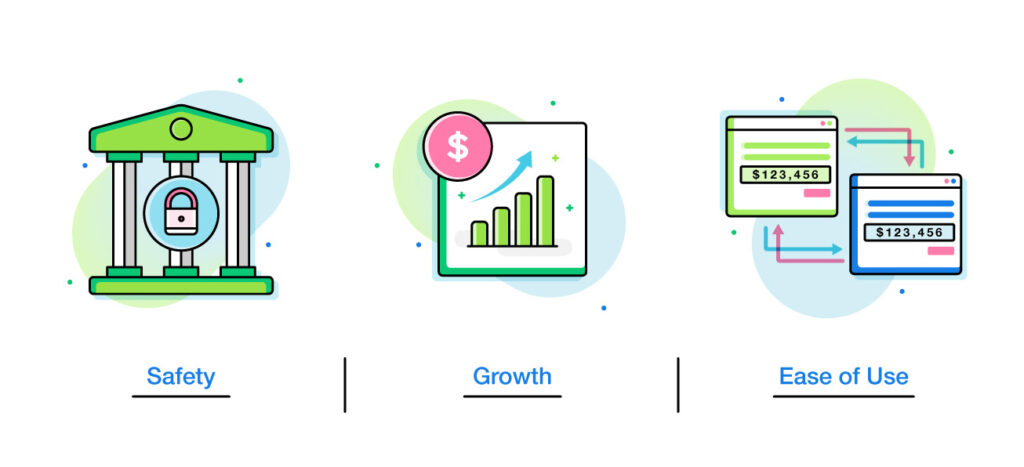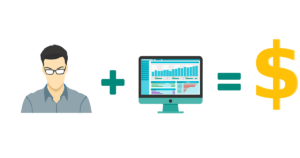Today in this blog post we will learn that. Which savings account will get you the least money? Choosing the right savings account can make a significant difference in your financial future in a world where every penny counts. Which Savings Account Will Earn You the Least Money? However, not all savings accounts are created equal, and some may leave you with disappointingly low returns. This article will guide you through the intricacies of savings accounts, helping you decide which will earn you the least.
Introduction
When it comes to saving money, one question often plagues the minds of savers: “Which savings account will earn you the least money?” This might seem like an unusual inquiry, but it’s crucial to understand that not all savings accounts are designed to help your money grow. In this article, we will explore various types of savings accounts, how interest rates work, and the factors that can negatively impact your returns.
Types of Savings Accounts
Traditional Savings Accounts
Traditional savings accounts are the most basic option available at banks. They generally offer low-interest rates, making them one of the options that will make you the least money over time. These accounts are suitable for individuals who want easy access to their funds but are not concerned about maximizing their earnings. Which Savings Account Will Earn You the Least Money? We will talk about this further, please read the post completely.
High-Yield Savings Accounts
Certificates of Deposit (CDs)
Certificates of Deposit, or CDs, require you to lock your money away for a specified period. While they offer higher interest rates than traditional savings accounts, they also have limitations on withdrawals.
Money Market Accounts
Plutocrats request Money Market accounts combine the features of a savings regard and a checking account. They offer competitive interest rates but often come with higher minimum balance requirements.
Interest Rates Explained APY vs. APR
Understanding the difference between Annual Percentage Yield (APY) and Annual Percentage Rate (APR) is crucial when evaluating savings accounts. APY reflects the actual return on your savings, considering compounding interest, while APR does not. Cardless ATM
Compound Interest
Compound interest plays a significant role in determining your overall returns. The more frequently interest is compounded, the more you can earn over time. High-yield savings accounts and CDs typically offer compounded interest. Cardless ATM
Factors Affecting Savings Account Returns and Which Savings Account Will Earn You the Least Money?
Inflation
Inflation is the silent enemy of your savings. If your savings account interest rate is lower than the inflation rate, you are effectively losing purchasing power over time.
Fees and Charges
Many savings accounts come with fees, such as maintenance fees or excessive withdrawal fees. These can eat into your earnings.
Withdrawal Restrictions
Some savings accounts limit the number of withdrawals you can make each month. If you exceed these limits, you might face penalties or see a reduction in interest.
Case Studies: Which Savings Account Will Earn You the Least Money?
Let’s examine four different scenarios to understand which savings account will earn you the least money:
Case 1: Traditional Savings Account
Suppose you deposit $1,000 in a traditional savings account with a 0.5% interest rate. After one year, you’ll have earned a mere $5 in interest.
Case 2: High-Yield Savings Account
In contrast, if you put the same $1,000 in a high-yield savings account with a 2.0% interest rate, your earnings after a year would be $20, four times more than the traditional account.
Case 3: Certificates of Deposit (CDs)
A 12-month CD with a 1.5% interest rate on the same $1,000 deposit would yield $15 in interest after a year.
Case 4: Money Market Account
Suppose you open a money market account with a 1.75% interest rate. After one year, you’d have earned $17.50 in interest on your $1,000 deposit.
Strategies to Maximize Savings
To ensure you don’t end up with the savings account that will earn you the least money, consider these strategies.
Regular Contributions
Make consistent deposits into your savings account. The more money you have in your account, the more interest you are likely to earn.
Automatic Transfers
Set up an automatic transfer from your checking account to your savings regard. This ensures you’re saving money regularly without having to think about it.
Comparison Shopping
Before choosing a savings account, compare different options’ interest rates, fees, and terms. This will help you select an account that aligns with your financial goals.
Conclusion
While most people aim to maximize their savings and watch their money grow over time, there are situations where individuals might want to know which savings account will earn them the least money. This can be relevant when exploring the impact of low-interest rates, account fees, inactivity or minimum balance requirements, and limited access on savings growth.
However, it’s important to emphasize that earning the least money from your savings should not be a long-term financial goal. In most cases, individuals seek to optimize their savings and make their money work for them by choosing accounts with competitive interest rates, minimal fees, and easy access. Careful consideration of these factors will help you make an informed decision when selecting a savings account that aligns with your financial goals and priorities.
FAQs
Are high-yield savings accounts safe?
Yes, high-yield savings accounts offered by reputable banks are typically FDIC-insured up to a certain limit, making them a safe option for saving money.
Can I withdraw money from a CD before it matures?
Yes, but you may face penalties or forfeit some of your interest earnings. It’s essential to check the terms and conditions of your CD.
How often is interest compounded in a money market account?
The frequency of compounding interest in a money market account varies by bank. Some may compound it daily, while others do it monthly or quarterly.
Is it better to have multiple savings accounts for different goals?
Having multiple savings accounts can help you organize your finances better, but it’s essential to choose accounts that align with your specific goals and offer competitive interest rates.
What should I do if my savings account’s interest rate drops?
If your savings account’s interest rate decreases significantly, consider shopping for a new account with a better rate to maximize your earnings.









7 thoughts on “Which Savings Account Will Earn You the Least Money? 2024?”